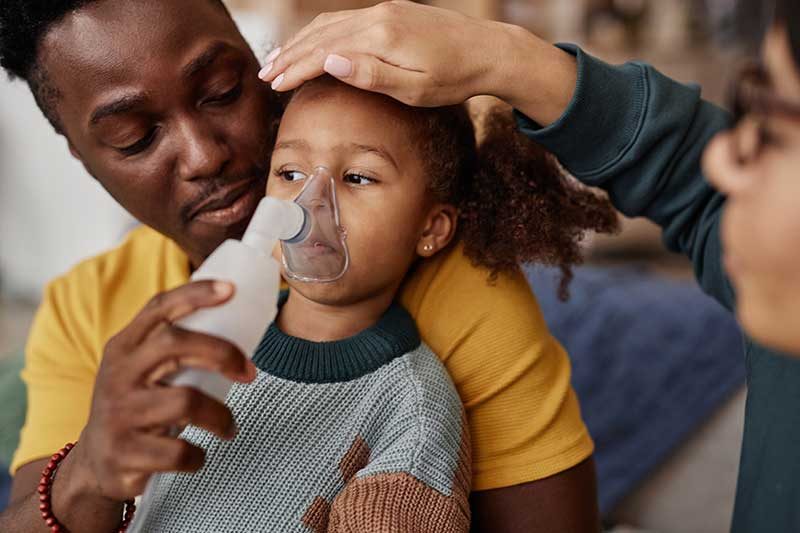
DiYES International School – Early signs of asthma in kids can often be subtle, making it challenging for parents to identify. However, recognizing these signs early is crucial for managing the condition and ensuring proper treatment. Asthma is a chronic condition that affects the airways, causing difficulty breathing. If left untreated, it can lead to serious health issues. This article will highlight the early warning signs of asthma in children, so parents can take action quickly.
Asthma is a respiratory condition where the airways become inflamed and narrow, making it harder to breathe. The condition is common among children and can worsen over time if not addressed. It often results in wheezing, coughing, and shortness of breath. Asthma attacks can be triggered by various factors, including allergens, cold air, and physical activity. Early diagnosis and proper management are essential in controlling asthma and minimizing its impact on a child’s life.
“Read about: What Parents Need to Know About Singapore Flu in Kids”
One of the earliest signs of asthma is persistent coughing, particularly at night or early morning. If a child frequently coughs after physical activity, laughing, or laughing, it could indicate asthma. This coughing is usually dry and can worsen at night, disrupting the child’s sleep.
Wheezing is another common sign of asthma. If you hear a high-pitched whistling sound when your child exhales, it could be a sign of narrowed airways. Wheezing occurs when air moves through narrowed or inflamed airways, causing this distinct sound. Parents should seek medical advice if they notice this sound regularly.
A child may experience shortness of breath, especially after physical activity or during a cold. Shortness of breath occurs when the airways become restricted, making it harder for air to flow in and out of the lungs. If your child seems out of breath after activities that didn’t used to be difficult, asthma may be the cause.
Children with asthma often complain of tightness or discomfort in the chest. This sensation happens when the airways constrict, making it feel as though the chest is tight or heavy. The child may also appear to be struggling to catch their breath. If your child describes this feeling or exhibits signs of it, it’s important to get them checked by a doctor.
If you notice that your child is breathing faster than usual, it may be due to asthma. In children with asthma, the body compensates for restricted airways by increasing the respiratory rate. Parents should observe if their child breathes faster than normal, especially during activities that require exertion.
“Read more: A Child Lives a Happy and Fulfilling Life? Here Are the Indicators”
Asthma symptoms are often triggered by specific environmental factors or allergens. Common triggers include:
If you notice any of the early signs of asthma in your child, it’s essential to consult a pediatrician. A healthcare provider can perform tests to determine if asthma is the cause of the symptoms. If diagnosed with asthma, children can often manage the condition with medications and lifestyle changes.